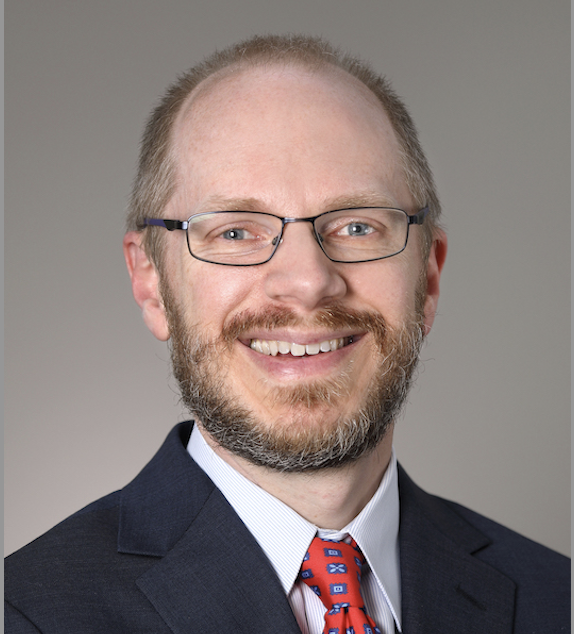Alliance Discussion with Dr. Josh Denny: Facilitating Medical Breakthroughs through a Diverse Research Database

Since 2018, the All of Us Research Program within the National Institutes of Health has undertaken a historic effort to collect and study data from one million or more people living in the United States to create better health for all of us through precision medicine. Chief Executive Officer, Dr. Josh Denny, joined us to discuss the work of the All of Us Research Program, including their efforts to build a diverse database that can inform thousands of studies on a variety of health conditions. Here are some of his thoughts on:
The mission of the All of Us Research Program:
“The [All of Us Research Program] launched nationally in 2018, with the mission to accelerate health research and medical breakthroughs, to enable individualized prevention, treatment, and care for all of us. Our goal is to reach at least a million diverse participants. We want to nurture longitudinal relationships with participants across the country who partner with us to make health care better for everyone. We want to take the trust that we get from our participants and sharing their data and deliver it safely and securely into as many researcher’s hands as we can; and have an ecosystem of researchers, funders, and communities that help support this program to become an indispensable part of research into the future.”
The importance of including diverse researchers:
“We believe that if you have more diverse researchers, you’ll do better science, you’ll get more diversity of the questions you ask. I think we can play a role in building up the biomedical workforce by enabling that kind of power and access to this kind of community. It’s important to our participants; our participants want to see researchers from their communities using the data. So, we have more than 700 institutions that have access to the resource (data). Now, many of these, we have deliberately focused on creating on-ramps for minority serving institutions, historically black colleges and universities, Hispanic-serving institutions, we have some awards to help support tribal colleges and universities, and indigenous researchers as well. About 40% of our researchers are diverse by race and ethnicity, which includes any race or ethnicity other than non-Hispanic white and Asian. And we really think about stage of researcher as well, in that we’ve created programs to help people onboard and sessions where they can call up and talk about their problems in using the data and get help in the process.”
How All of Us is connecting with representative samples of diverse populations:
“It is really important that we connect with diverse audiences, and [we connect] through a nationwide network of community partners and participant advocacy groups that carry the messages to our participants. Groups like the National Alliance for Hispanic Health, Asian Health Coalition, FiftyForward – working with older individuals, and the Black Greek Letter Consortium. We have more than 100 partners that are engaged, nationally or locally. Beyond that, our academic medical centers, regional medical centers, and federally qualified health centers – all these different groups that are in neighborhoods and working with local organizations to get that message out and convey that trust. It’s our responsibility to make sure we protect the data and secure it.”
Benefits of enrolling as a participant in All of Us:
“All of Us is distinct in several ways. One [way] is this focus on diversity and partnering with participants. One of the things that’s built off that is a focus on return of value. Now, the number one reason we hear from participants about why they join is around making science better for their communities. We know that we can provide value to our participants as well, and one of the biggest ways we have done that is genomics. We are doing genomic health-related return of results. We launched that a little over a year ago. It includes 59 genes that have very dramatic impacts on health, and that you can do something about if you have it – things like breast and ovarian cancer syndrome, genes BRCA1 and BRCA2, genes around Lynch syndrome and colon cancer, and other cancer risk; hereditary cardiomyopathy and hereditary arrhythmias, which can sometimes present for the first time with death. So, we return these. We have genetic counselors to support this process that are native speakers of English and Spanish, and we have a language line that can support 200 additional languages to support the communication of these results. We’ve now returned about 100,000 results. We’re talking about more than 2,000 people that have received results like this; it could have a dramatic impact on their life, and really change things for them.”
Impacts of the All of Us Research Program:
“We have over 300 papers that have come out so far, and it’s really accelerating. We [recently] had five papers come out in nature journals, including the first large description of our DNA resource. A couple other papers that looked for the first time at a way to take a polygenic risk score, which is this summation of a bunch of different genetic variants towards risk of a common disease like heart disease. These scores are generally not that applicable to diverse populations, so by using [our DNA resource], they were able to diversify the scores. They’re being used in a trial right now in another network built off our cohort – a large study of diabetes with about two and a half million people total.”
Watch the full discussion here.




